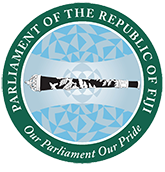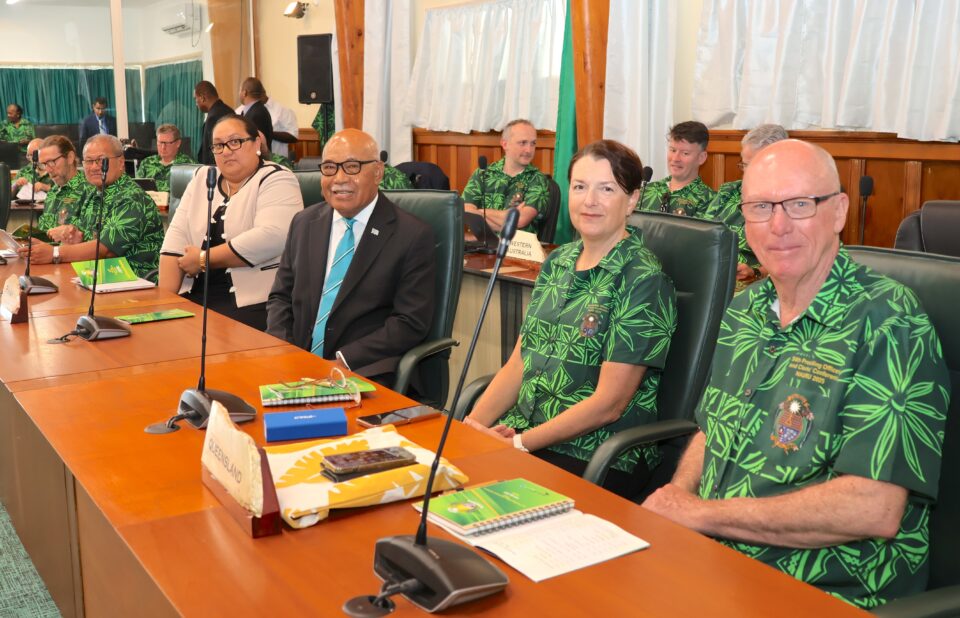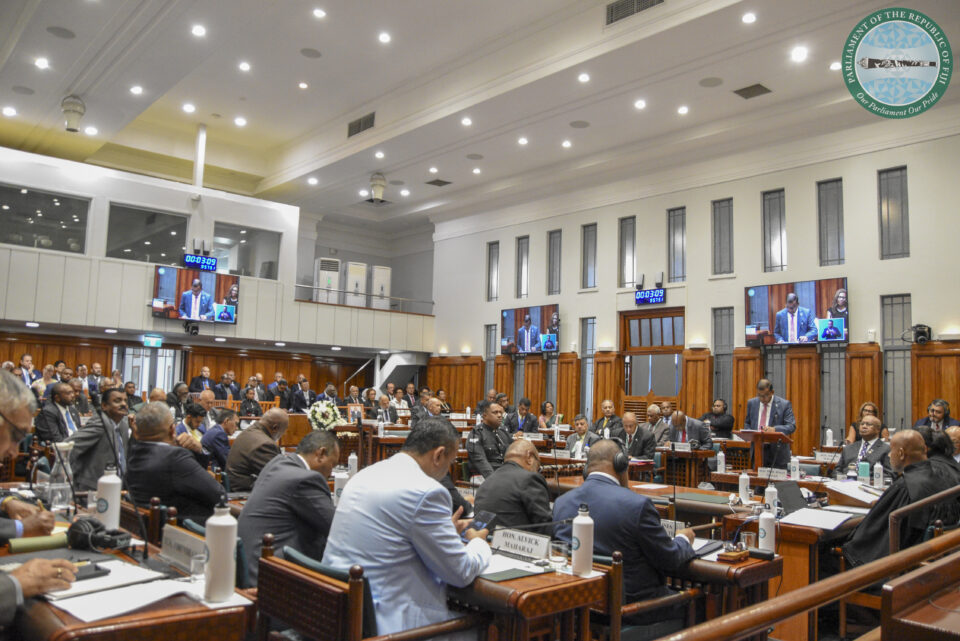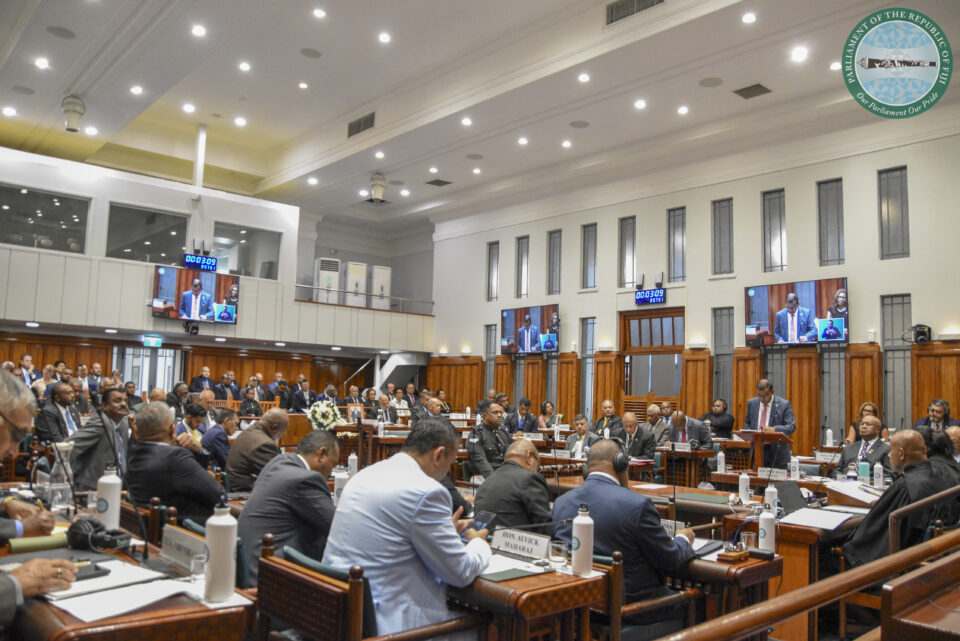MPs need to keep abreast with new information, knowledge and ideas – Hon. Ratu Epeli
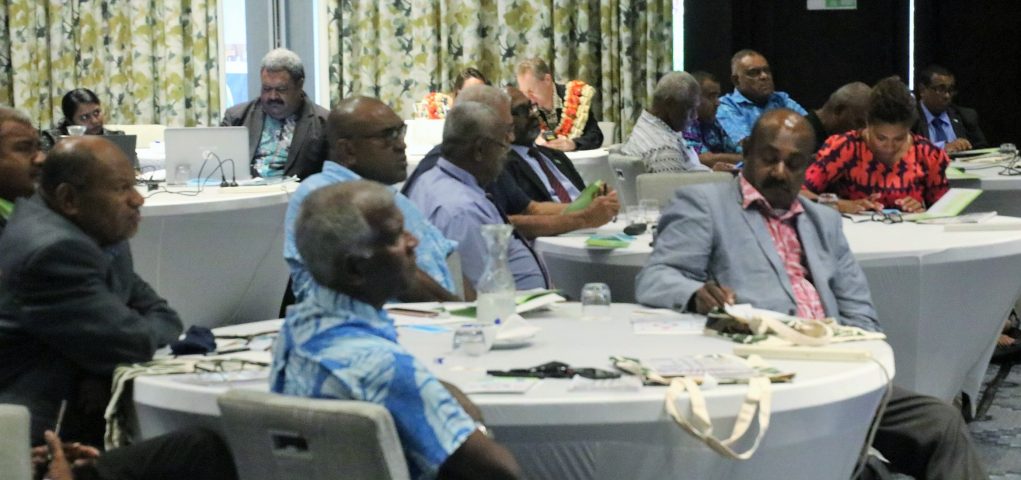
Speaker Hon. Ratu Epeli Nailatikau has reminded Members of Parliament (MPs) that they need to continuously arm themselves with new information, new knowledge and new ideas.
While opening a three-day workshop for MPs on Key Development Issues, SDG16, Hon. Ratu Epeli said that ‘we all need to be keenly aware of trends in the development agenda and the emerging national and global challenges; and how Parliamentary practices adapt accordingly’.
“This workshop is part of the ongoing initiatives by Parliament and the UNDP under the Fiji Parliament Support Project (FPSP) to continue to progress discussions on Key Development Issues linked to the UN 2030 agenda for Sustainable Development and the Sustainable Development Goals (SDGs), in particular SDG16 which is: to promote peaceful and inclusive societies for sustainable development; provide access to justice for all and; build effective accountable and inclusive institutions at all levels. There are also discussions on SDG 5: achieve gender equality and empower all women and girls.”
“The workshop is also part of the regular capacity-building initiative of the Parliament to continuously enhance Member’s knowledge and understanding of Parliamentary practices and Standing Orders in the Fijian Parliament and that of other Parliaments, particularly those from commonwealth jurisdictions,” Hon. Ratu Epeli said.
The Speaker also highlighted that the Parliament sittings and debates for 2021 have concluded and that the year ahead would be a busy one.
“After a hard hitting 2021, I know – and I am certain you all suspect it as well that 2022 will be a very busy year for all of us.”
“I wish to remind Honourable Members that we have completed our Parliament sittings and the debates for this year. This is a workshop and not an extension of the debating chamber. Therefore, keep the debates at the chamber and let us not have marathon debates here,” Hon. Ratu Epeli added.
UNDP Pacific Office in Fiji Resident Representative, Mr Levan Bouadze said that the COVID-19 pandemic has impacted us all and deeply questioned the very core of our social contracts and the importance of the 2030 Agenda as a holistic vision for a just, prosperous and healthy society.
“Over the past two years, there have been extensive discussions and debates on matters related to the economic and social impact of the pandemic, its impact on specific categories of the population such as women and youth, and how the recovery could allow for a greener – and “bluer” Pacific economic growth.”
“Often, the angle taken for these discussion has been through specific SDGs, health (SDG 3), poverty alleviation (SDG 1), gender equality (SDG 5), the environment (SDG 13 and 14), and others.”
“Your constitutional mandate to legislate, oversee Government policies and programmes, including enacting and scrutinising the Government budget and representing the views of your people, makes you, as parliamentarians, crucial partners in ensuring the accountable, inclusive, participatory and transparent governance that is necessary to achieve sustainable development for all,” Mr Bouadze said.
Meanwhile, the Australian Deputy High Commissioner, Mr Paul Wilson acknowledged the resilience displayed, and the results delivered, by the Speaker, Members of Parliament and Parliamentary Staff during the COVID-19 pandemic.
“Despite the challenges, Fiji’s Parliament continued to undertake its core functions throughout the pandemic, and to deliver for Fiji’s citizens.”
“One of the mechanisms that allowed this was the use of innovative solutions such as information and communication technology for hybrid sittings of Parliament and virtual committee meetings.”
“Fiji’s Parliament was one of the first in the region to develop the capacity for its committees to meet virtually, and for its plenary to meet in a hybrid manner. This allowed work to continue through restrictions on travel and on social distancing,” Mr Wilson said.
The MPs workshop is facilitated and supported by the UNDP and development partners of the FPSP – the Governments of Australia, New Zealand and Japan.
-End-

